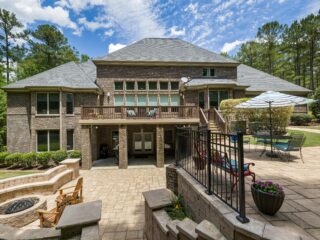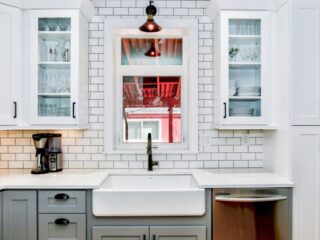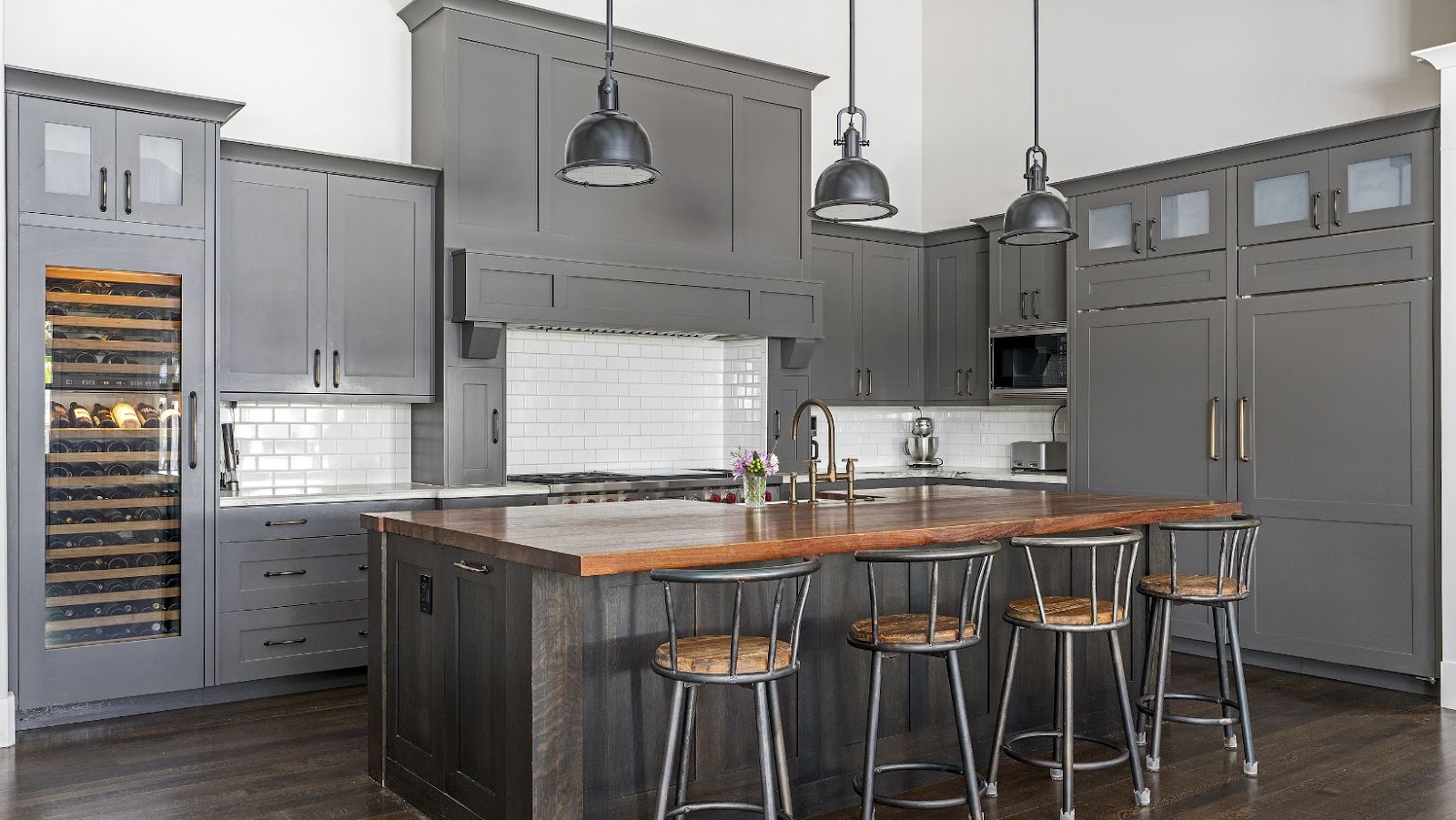
Questions to ask when doing a kitchen renovation
Tracking the cost of a kitchen renovation can be a challenging task but it is extremely important for staying within a budget. To ensure that you are estimating the correct costs for your kitchen renovation project, you should ask yourself a few key questions.
Here are some of the most important ones that you should consider asking before beginning a kitchen renovation:
- What type of materials do I need?
- What is the estimated cost of labor?
- Do I need to hire a professional contractor?
- What type of appliances do I need?
- What is the estimated timeline for the project?
- What type of permits do I need?
Determine your budget
Before you begin the renovation process, it is essential to calculate your budget and determine what you are willing to spend. Do your research and find out averages for the materials, appliances and labor you desire. It is also wise to include 10-20% in additional costs that may come up during the renovation.
Once your budget is determined, you can start narrowing down decisions regarding materials and features in order to stay within your budgeted amount and begin comparison shopping from leading online retailors like https://www.worldcoppersmith.com/. Knowing your exact cost targets will also make it easier when it comes time for shopping around for estimates from contractors or stores. Plus if there are any items or features that may be out of reach financially, this step helps early on so that any disappointment does not arise further along in the process.
It is important to keep track of costs throughout the entire kitchen renovation project with receipts and notes on extra expenses or amendments made along the way. This will help ensure that no surprises occur at the end when settling bills with contractors or suppliers. As long as careful record keeping is done, hopefully all calculations will line up perfectly with actual expenditures once complete!
Research the cost of materials and labor
When researching the cost of a kitchen renovation, it’s important to consider the cost of both materials and labor. You’ll need to outline your budget and know what you want before any work begins. Here are some questions that can help you estimate the cost of materials and labor:
Materials:
- What types of flooring, tiles, lighting fixtures, and cabinets do you prefer?
- Are custom fixtures or appliances part of the renovation plan?
- Are there any specialty items or add-ons that will be required to complete the project?
Labor:
- Will professional contractors be hired for specific aspects of the renovation?
- Is there any demolition or reconstruction that needs to be done?
- How long will it take for each phase of work to be completed?
Consider the cost of appliances and fixtures
When planning for a kitchen renovation, it is important to consider the cost of replacing your appliances and fixtures. You will want to determine what types of appliances and fixtures you need in order to best utilize the space and make the most of your kitchen design. Are you looking for an industrial grade refrigerator or sleek cooktop? Perhaps stainless steel faucets and countertops? Make sure you have a general idea of the approximate cost of each component so that your budget reflects it accurately.
It may be beneficial to prioritize items according to their priority and importance before actually making any commitments. This will better ensure that you are able to work within your given budget while achieving the look and design you desire. Knowing how much each item costs ahead of time can help prevent any unwelcome surprises when it comes time to commit financially.
In addition, consider the following when making your decisions:
- If appliance installation costs are included in the retail price.
- How often repairs or maintenance will be required once they are in place.
- Evaluating appliances on energy efficiency ratings to cut down utility bills.
- Replacing older models with modern technology to greatly enhance the aesthetic appeal of a kitchen design overall.
Contractors
When doing any kind of kitchen renovation, one of the most important considerations is choosing the right contractors for the job. It is vital to find experienced and reliable contractors who can work within your budget and timeline.
Before you hire a contractor, there are certain questions you should ask to ensure you are getting the best value for your money. This section will cover the questions you should ask when selecting contractors for a kitchen renovation:
- What is the contractor’s experience?
- What is the contractor’s track record?
- What is the contractor’s estimated timeline?
- What is the contractor’s estimated cost?
- Does the contractor offer any warranties or guarantees?
Get several quotes from contractors
Getting multiple quotes from contractors is one of the most important steps when planning a kitchen renovation. Make sure you provide each contractor with a detailed set of specifications that outline exactly what needs to be done and the materials required, so you can compare quotes on the same basis.
You should also give each contractor ample opportunity to ask questions about the project, to fully understand what needs to be done and how long it is likely to take. This will give them time to accurately estimate their costs, and come back with a realistic quote.
When getting multiple quotes it is important that you are comparing apples with apples – any deviation in specifications and timescale could affect the total cost, or result in unforeseen or hidden costs down the line. Consider these points when comparing contractors:
- Their experience in kitchens renovations
- Their portfolio of previously completed work
- Their preferred payment terms (usually 50% up front)
- Whether they have any stockist deals on materials
- The quality of the products they offer (e.g. cabinets, flooring)
- Any warranties for completed work
- Who will be responsible for dealing with any permitting issues, such as gas safety certificates or building control requirements
By considering these points as well as their quote price and timescale, you will be able to find a contractor that meets your expectations within budget and on time.
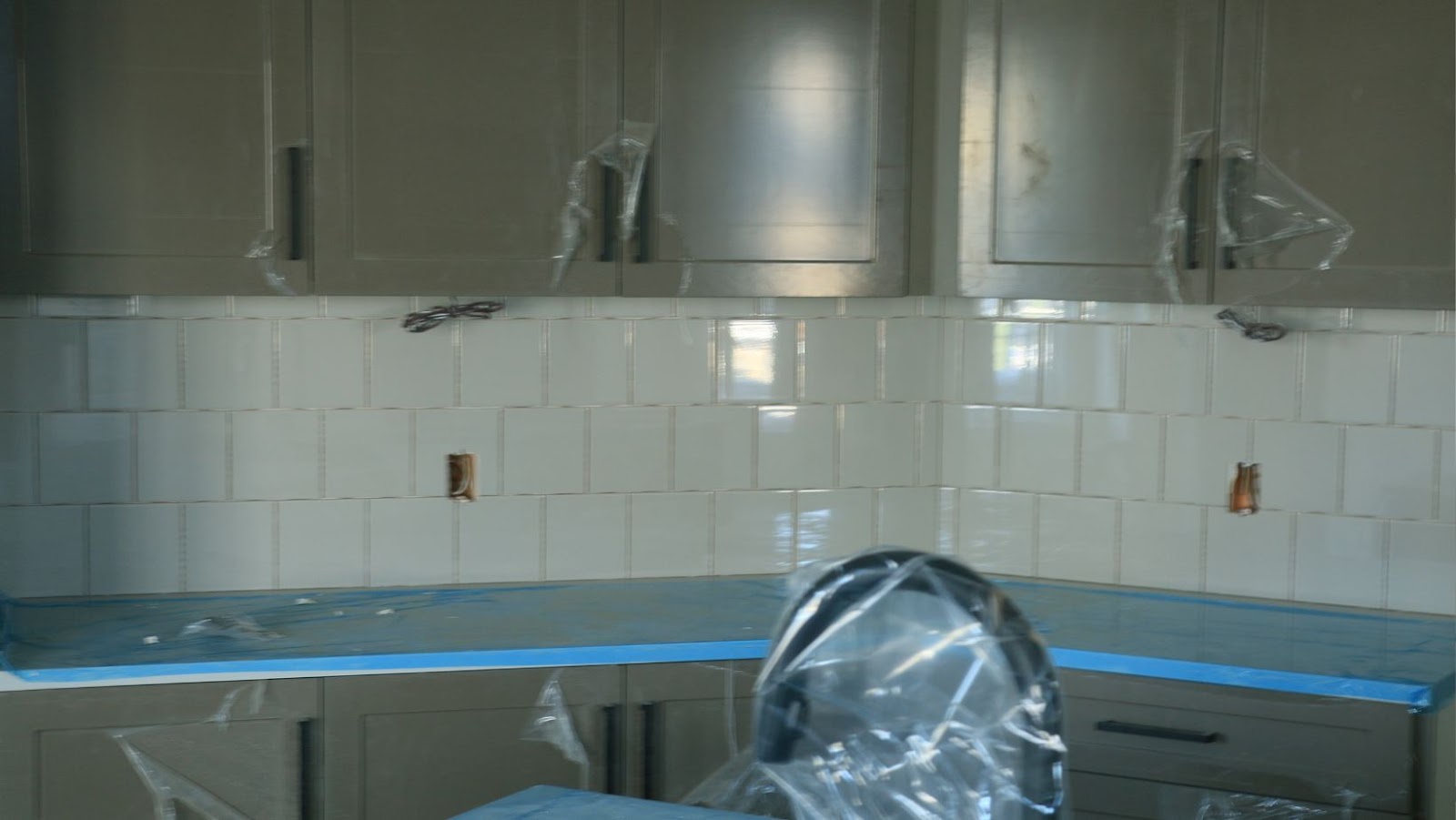
Ask for references and check feedbacks
When looking for a contractor for a job, it is important to do your research. Ask them for references from customers and check the feedbacks. You can also find trade associations in your area that you can check for feedback from prior customers.
It is also essential to make sure a contractor holds all necessary licenses and certifications required in your local area, as well as having current insurance coverage. Additionally, you should inspect their work history carefully and always have the work agreement drawn up in writing; this will help protect both parties’ interests.
Finally, make sure to inquire about the contractor’s payment policies and any warranties they may offer on their services or the products they use as part of their job. All of these steps should help ensure that you are getting a skilled professional who will deliver quality work completed according to industry standards:
- Ask for references and check feedbacks.
- Check trade associations for feedback.
- Make sure the contractor holds necessary licenses and certifications.
- Ensure the contractor has current insurance coverage.
- Inspect their work history.
- Have the work agreement drawn up in writing.
- Inquire about payment policies and warranties.
Make sure the contractor is licensed and insured
Before signing a contract with a contractor, it is important to check if they are licensed and insured. In most states, contractors need to have a license that allows them to legally carry out the kind of work you require. Make sure to research the contractor before you hire them; you can usually find licensing information online.
In addition, contractors should be covered by insurance, including:
- General liability (this covers any damage that is caused during construction)
- Workers’ compensation (this covers any injury sustained by workers on the job)
- Automobile liability (if their vehicle is involved in an accident).
Verify their insurance coverage before work begins. Contractors should also typically have references from previous customers that can attest to the quality of their services; ask for those references. If something does go wrong during the renovation process–like if something breaks or an error is made—you can trust that the contractor will take responsibility for it and do what’s necessary to fix it.
Additionally, estimate whether there may be reason for extra costs or added time needed once work begins; this will give you enough time to adjust your budget and expectations accordingly in case there are unexpected surprises along the way.
Design
Renovating a kitchen can be a daunting task, but with the right design, you can end up with a kitchen of your dreams. When considering design elements, there are several questions to ask yourself:
- What type of kitchen layout would best suit your needs?
- Are there specific features, such as cabinets or countertops, that you want to include in the renovation?
- What type of materials would be the most cost-effective?
Thinking through the design questions will help you create the perfect kitchen plan.
Choose a design that fits your budget
It is important to have an understanding of the total cost of a kitchen renovation before you start. When deciding on a budget, consider renovation costs such as appliance updates, cabinetry, countertops, floors, lighting and plumbing fixtures.
To help you estimate the costs associated with your kitchen makeover, here are some questions to consider:
- What are the dimensions of your kitchen and what changes do you want to make?
- What type of appliances do you plan to install or replace?
- What type of cabinetry will be needed for storage and aesthetics?
- Are there existing countertops that will need to be replaced or upgraded?
- Which types of flooring would work best in your kitchen?
- How many new lights will be needed for adequate illumination throughout the space?
- Are any plumbing roughed up during construction and what fixtures will be needing replacing?
Answering these questions should help provide an initial budget estimate for your project. Additionally, research local contractors in your area for quotes on services as well as materials like appliances and cabinetry to ensure that design fits into your budget.
Consider the layout and flow of the kitchen
When deciding on the layout and flow of your kitchen, it is important to consider both the functional and esthetic aspects. Start by asking yourself some questions about the role this space will play in your home:
- How many cooks will typically be in the kitchen?
- Do you often host large gatherings or parties?
- Do you prefer an open floor plan?
- Are your appliances in need of an upgrade?
- What type of cabinets, counters and other features do you want included in the design?
- Do you have a preference for a particular style or color palette for the décor?
Answering these questions can help identify considerations such as space requirements, doorways and traffic flow. Pay close attention to these details; they will have an impact on your overall cost. A poorly planned layout can lead to more costly modifications down the line. Make sure you create a functional kitchen with plenty of workspace that is designed with efficiency and aesthetic appeal in mind.
Select the right materials and finishes
Selecting the right materials and finishes for a kitchen renovation is one of the most important steps in the process. Different materials and finishes can affect the overall look and feel of your kitchen, as well as the total cost of your renovation project. To ensure that you get the best results from your renovation, it is important to ask questions about the types of materials and finishes that are available, whether they will provide value for money and how they will be used in your kitchen design.
When considering different materials and finishes for your kitchen, think about aspects such as durability, longevity, visual appeal, maintenance requirements and overall appearance. For example, some countertop materials are easier to maintain than others or may provide a better aesthetic finish; while some cabinets may have particular advantages over other designs in terms of storage space or accessibility.
It’s also important to think carefully about which products will be best suited to your needs: consider factors such as water resistance levels when looking at tile options or ventilation needs when considering cabinetry systems. Before choosing any products for your kitchen make sure you fully understand what is available on the market in terms of product range, warranties (and associated costs) along with installation methods. Remember that expert advice always pays off!
Installation
When estimating the cost of a kitchen renovation, installation cost is one of the factors you should consider. Installation costs including labor, materials, and any equipment required typically account for 25-50% of the overall cost. Knowing what to look for and the questions to ask is a crucial step in the process of budgeting for a kitchen renovation.
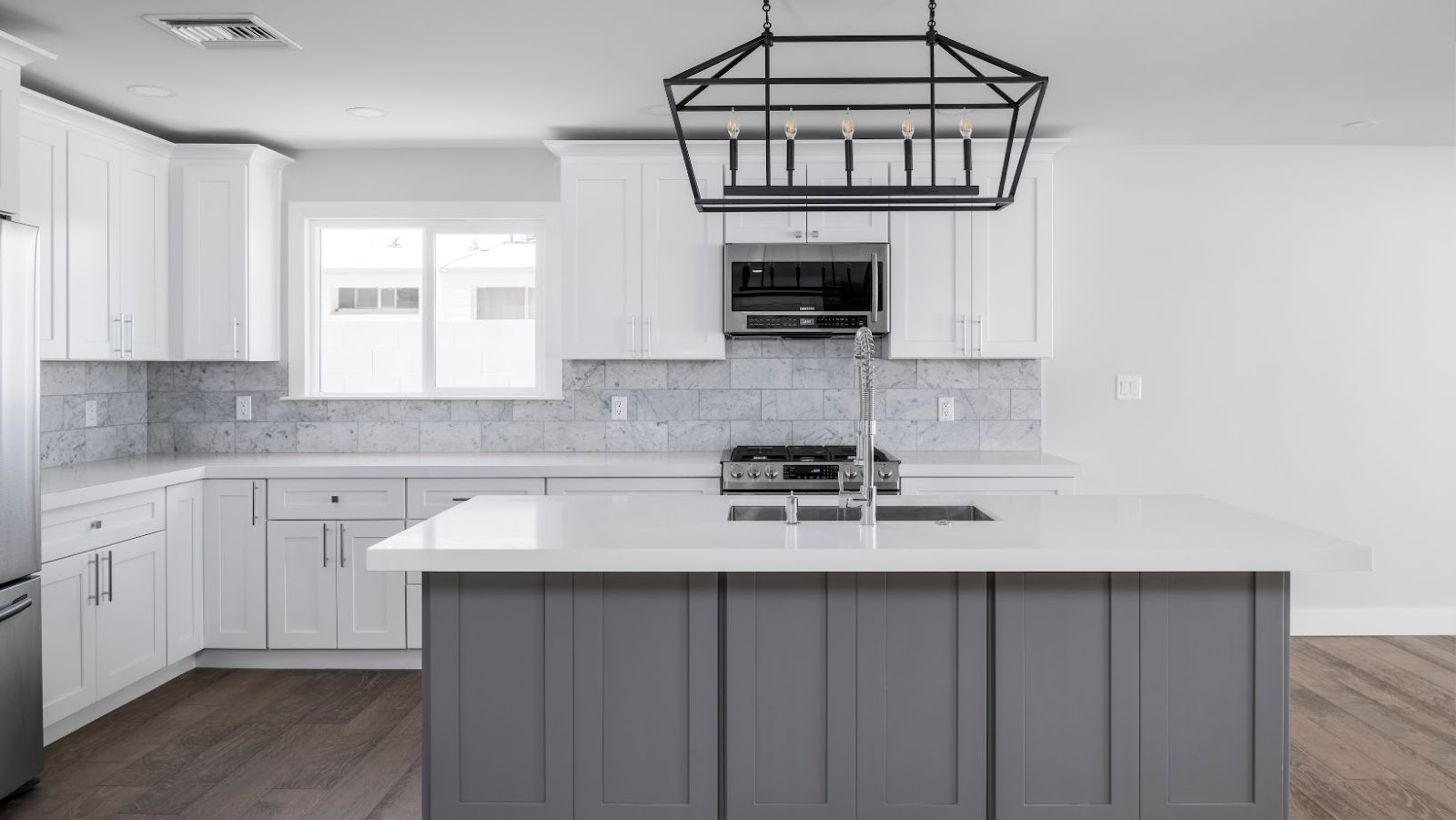
Have a detailed plan of the installation process
When estimating the cost of a kitchen renovation, it’s important to have a detailed plan of the installation process. This should include steps such as which tradespeople will be needed and how long they will take. In addition, all contractors’ availability needs to be confirmed, and timeline calendars and invoices should be agreed upon in advance.
For example, if you need plumbing or electrical connections installed your contractors need to know if access is limited in the renovation project.
Other factors to consider include:
- the materials used for installation such as cabinetry, counters, appliances and flooring and whether there are unique requests that need to be taken into account.
- factoring in labor costs is essential when calculating the overall cost as this constitutes a significant proportion of the total budget for any kitchen renovation project.
- It is also important to factor in any decorative finishes or customizations that may be required in order to meet your desired final look.
- Finally, do not forget about permitting fees and building codes that must be taken into consideration before the installation process begins.
Have a timeline for the installation
Having a timeline for the installation process is key to ensuring that the project is completed in a timely and successful manner. It’s important to plan out each step of the installation process and develop an achievable timeline so that all of the components are ready in time for the completion date.
This involves researching every aspect of the project, such as pre-installation requirements, equipment delivery times, shipment tracking numbers, and installation crew availability. It is also vital to identify any potential issues that may arise during the installation process such as weather or inaccessible areas.
Communication between all those involved in the project should be frequent and detailed throughout each step to guarantee that expectations are clear and progress can be tracked effectively. This timeline should be adjusted if needed during work in order to remain on track with deadlines.
Make sure the contractor follows the timeline
Ensuring that the contractor sticks to the established timeline is an integral part of successfully completing a kitchen renovation. It’s important to be aware of any potential delays that could occur, such as inclement weather or haulers being blocked by a pile of supplies. It’s also essential for contractors to understand what your expectations are for duration and completion, so you won’t be taken off guard if it takes longer than expected.
When interviewing contractors, ask about specific scenarios and contingencies and make sure the contractor understands that any delays will ultimately cost them more money in wages. This will help set expectations from the beginning and incentivize contractors to stay on track throughout the project’s duration.
Furthermore, a written agreement between the client and contractor can help define terms if needed and provide recourse in case something goes awry during the estimated timeline.
Finishing Touches
When it comes to the finishing touches of a kitchen renovation, it is important to make sure that all items are planned and accounted for. This includes considering the cost of the materials, labor and installation.
In this section, we will explore some of the key questions to ask when planning and estimating the cost of a kitchen renovation:
- What materials are needed?
- What labor is required?
- What is the estimated cost of installation?
Choose the right lighting fixtures
It’s important to choose the right lighting fixtures for your renovated kitchen, as this can make all the difference in the overall look of your space. The best kitchen lighting should provide enough light to cover all areas while also complementing your style.
When selecting lighting fixtures, consider these key factors: ambient light, task-oriented lights, accent lights and decorative lights.
- Ambient lighting provides general illumination throughout the room and can be achieved through recessed cans, flush mount ceiling lights or pendant lights.
- Task-oriented lights provide an increased level of illumination focused around work spaces such as islands or countertops. They include under cabinet lighting, wall mounted lamps and chandeliers.
- Accent lights highlight key pieces in your kitchen such as artwork on a wall or backsplash details around a stove top.
- Decorative lights like sconces or wall mounted lamps provide additional style accents within the space.
When renovating your kitchen it is best to work with a reputable electrician who can help you assess which type of lighting would be best for each area of the kitchen and provide valuable insight throughout installation and wiring processes. Seeking professional advice is highly recommended to ensure that all elements come together during renovation.
Add accessories and decorations
Now that you have taken care of the essentials when it comes to a kitchen renovation, it’s time to add some of the finishing touches! A kitchen update can really benefit from adding small accessories and decorations that make up for the ‘wow’ factor.
Some questions to consider when doing this include:
- What type of accessories would I like to add around the room? Common choices may include shelves, bookshelves, counters, cabinets, islands etc.
- What kind of decorations would I like to use? Think carefully about colours and materials here – especially in terms of what works well with the design you have chosen.
- Do any specialized items need to be ordered (i.e. pot holders, utensil containers etc.)? For these items you will need to also estimate their cost before making a decision.
- How much am I willing to spend on this last part? Going over budget on decorating can affect earlier investments in more essential components such as flooring or countertops.
Have a plan for post-installation maintenance
Once the planning, designing, and installation processes of your kitchen renovation are complete and you are enjoying the newly refurbished culinary dream space, it’s time to consider the maintenance that goes into ensuring everything stays in great condition. Knowing how to handle post-installation maintenance can help you minimize costs on necessary repairs and replacements down the road. Here are a few questions to ask when planning for aftercare:
- What specific tasks need to be done? Make sure there is a clear understanding of all cleaning, repair, and replacement tasks that will be required to keep your kitchen looking its best over time.
- What materials should I use? Carefully select any cleaning products or materials used for repair work in order to ensure they won’t harm any finishes or surfaces in your kitchen.
- How often does post installation maintenance have to be done? Map out an acceptable timeline for upkeep that meets safety standards and works with your lifestyle.
- Who will perform routine checks? Create a formal plan detailing who is responsible for staying on top of regular inspections (e.g., yourself, hired pros).
Being aware of the time and resources needed for post installation maintenance is essential when estimating the cost of completing a kitchen renovation but equipping oneself with this knowledge can do much more; it can ensure that you get maximum value from your investment now and into the future.

